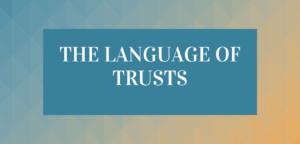How Long Do I Need to Keep My Tax Records?

How Long Do I Need to Keep My Tax Records?
April 15 is one of the most dreaded days of the year for many people, with the possible exception of accountants. However, what happens when all the hoopla of April 15 passes as people wake up on April 16 and go on with the rest of their lives?
You’ve filled out and filed your tax return and, of course, you’ve printed or saved an electric copy of your return. So just how long should you save those documents? Can you just toss them as soon as your refund comes? You can, but you shouldn’t. In fact, the law requires you to keep your tax returns, and all the information that goes with them, for three years.
What does the IRS thinks?
However, throwing everything away after three years could also prove costly if for some reason the IRS thinks you haven’t been accurate in one of your returns. The IRS can go back as many as six years to do an audit, should the agency wish. Therefore, keeping your tax records is very important, whether they are for business or personal.
Of course, there are many types of documents and not all of them are as important as the rest. That’s why at GROCO we have set up a helpful chart to detail which documents you should keep longer and which ones are OK to purge after less time.
You can click here to see this helpful information, which includes details for both business and personal documents, as well as which documents should be kept for a year, three years, six years and forever.
If you have any questions about saving your tax information, then you can always contact us at GROCO as well.
We hope you found this article “How Long Do I Need to Keep My Tax Records??” helpful. If you have questions or need expert tax or family office advice that’s refreshingly objective (we never sell investments), please contact us or visit our Family office page or our website at www.GROCO.com. Unfortunately, we no longer give advice to other tax professionals gratis.
To receive our free newsletter, contact us here.
Subscribe to our YouTube Channel for more updates.

Alan Olsen, is the Host of the American Dreams Show and the Managing Partner of GROCO.com. GROCO is a premier family office and tax advisory firm with clients all over the world.
Alan L. Olsen, CPA, Wikipedia Bio

GROCO.com is a proud sponsor of The American Dreams Show.

The American Dreams show was the brainchild of Alan Olsen, CPA, MBA. It was originally created to fill a specific need; often inexperienced entrepreneurs lacked basic information about raising capital and how to successfully start a business.
Alan sincerely wanted to respond to the many requests from aspiring entrepreneurs asking for the information and introductions they needed. But he had to find a way to help in which his venture capital clients and friends would not mind.
The American Dreams show became the solution, first as a radio show and now with YouTube videos as well. Always respectful of interview guest’s time, he’s able to give access to individuals information and inspiration previously inaccessible to the first-time entrepreneurs who need it most.
They can listen to venture capitalists and successful business people explain first-hand, how they got to where they are, how to start a company, how to overcome challenges, how they see the future evolving, opportunities, work-life balance and so much more..
American Dreams discusses many topics from some of the world’s most successful individuals about their secrets to life’s success. Topics from guest have included:
Creating purpose in life / Building a foundation for their life / Solving problems / Finding fulfillment through philanthropy and service / Becoming self-reliant / Enhancing effective leadership / Balancing family and work…

MyPaths.com (Also sponsored by GROCO) provides free access to content and world-class entrepreneurs, influencers and thought leaders’ personal success stories. To help you find your path in life to true, sustainable success & happiness. It’s mission statement:
In an increasingly complex and difficult world, we hope to help you find your personal path in life and build a strong foundation by learning how others found success and happiness. True and sustainable success and happiness are different for each one of us but possible, often despite significant challenges.
Our mission at MyPaths.com is to provide resources and firsthand accounts of how others found their paths in life, so you can do the same.
Venture Capital: Investing In The European Marketplace
Venture Capital: Investing In The European Marketplace By Stephen McLaughlin As anyone who has ever tried it knows, As anyone who has ever tried it knows, venture capital investing is not a game for the weak of heart. While it is certainly true that some venture capitalists have accumulated massive investing is not a game…
The Language of Trusts
The Language of Trusts Many professions and disciplines have their own vocabulary. As an example, think about the terminology used in medicine and law. Often this vocabulary defines complex ideas, yet just as often “terms of art” can be defined with relative ease to a layperson. Such is the case with much of the language…
Tax Planning Considerations
Tax Planning Considerations First Year Tax Issues Upon Becoming a US Resident If a married taxpayer wishes to file a joint return, both spouses must be residents at the end of the year and elect to be treated as U.S. residents for the entire year. If the taxpayer is taxed as a U.S. resident for…
Approaches to Valuing Cost Sharing Buy-Ins
Approaches to Valuing Cost Sharing Buy-Ins Buy-Ins: Introduction Buy-in payments are often associated with a cost sharing arrangement (CSA) transaction. See § 1.482-7 for regulations regarding cost sharing arrangements between related parties. Participants should receive arm’s length compensation (a “buy-in”) for “pre-existing” intangibles that are contributed to a CSA. The buy-in should be treated as…

